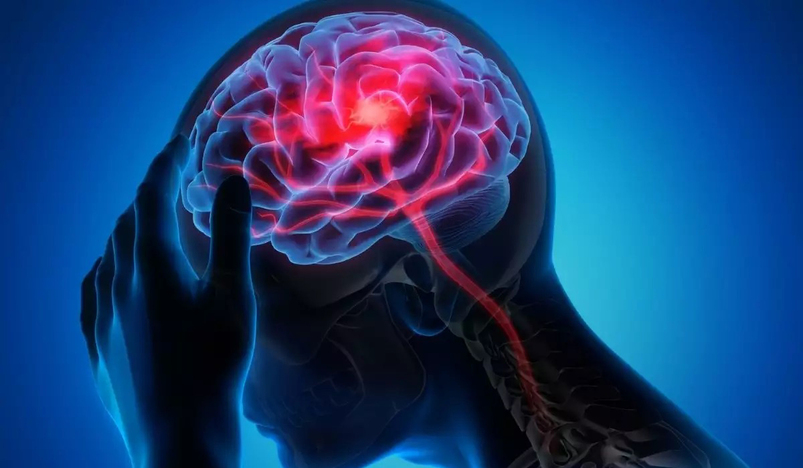
Brain disorders
The risk of being diagnosed with a neurological or psychiatric condition up to two years after catching covid-19 may be higher than with other respiratory infections, such as seasonal influenza
People who have had covid-19 have a higher risk of being diagnosed with a neurological or mental health condition up to two years later compared with those who experienced other respiratory infections, such as seasonal influenza.
Paul Harrison at the University of Oxford and his colleagues analysed the medical records of more than 1.25 million people from around the world who were diagnosed with covid-19 between 20 January 2020 and 13 April 2022.
The researchers compared the participants to people who experienced other respiratory infections in this period. In this control group, the researchers only included people who hadn’t tested positive for the coronavirus at any point in the timeframe.
For both sets of participants the team analysed the risk of developing 14 neurological and mental health conditions in the two years post-infection for three age groups: children under 18, adults aged 18 to 64 and adults older than 65.
Previous studies have looked at the neurological and mental health symptoms experienced by people in the six months following covid-19, but this is the first large-scale study to look for these effects up to two years post-infection, according to the researchers.
“This is very important because for patients, clinicians and public health authorities… you want to know at what point after covid-19 can you be reassured that you’re no longer at increased risk of getting a psychiatric diagnosis,” says Harrison.
Among adults aged 18 to 64, the risk of a first-time diagnosis of depression or anxiety in the two months after being infected with the coronavirus was 75 per cent and 60 per cent higher, respectively, than seen with other respiratory infections. For depression, this elevated risk dropped to the same levels seen after being infected with other respiratory diseases 43 days post-infection, on average, while for anxiety it was 58 days. Over two years, 18.2 per cent of those infected with coronavirus and 18.8 per cent of those infected with other respiratory diseases were diagnosed with depression. In the same period, 11.6 per cent of those with covid-19 and 11.5 per cent of those infected with other respiratory diseases were diagnosed with anxiety disorders.
However, the analysis found that the risk of being diagnosed with brain fog and epilepsy in adults aged between 18 and 64 remained higher in people who had covid-19 for up to two years post-infection, compared with those who experienced other respiratory infections.
In this age group, 6.4 per cent were diagnosed with brain fog within two years of covid-19, compared with 5.5 per cent of the participants who experienced other respiratory infections. A statistical analysis suggests this is a significant difference.
The risk of dementia was elevated in those aged over 65 for up to two years following covid-19, with 4.5 per cent diagnosed with dementia in the two years after covid-19, compared with 3.3 per cent in the control group.
Children weren’t found to have a higher risk of developing anxiety or depression after covid-19, compared with those who experienced other respiratory infections. However, they did face a higher risk of epilepsy or seizures for up to two years post-infection, compared with those who experienced other respiratory infections, though the actual probability of developing these conditions remained small. Just 2.6 per cent of children infected with coronavirus developed epilepsy or seizures within two years after coronavirus infection, compared with 1.3 per cent for other respiratory infections.
This age group also had a three-fold increase in psychosis in the two years after covid-19, compared with those who experienced other respiratory infections – though just 0.18 per cent of children were diagnosed with the condition in the two years.
The researchers also compared people in the US who caught different coronavirus variants. The rates of most neurological and mental health diagnoses were similar following infection with the delta or omicron variants, despite the latter generally being linked to milder disease.
Why covid-19 raises the risk of different neurological or mental health conditions is unclear, but there are possible explanations, says Harrison. The virus could persist in certain cells in the nervous system, or the immune system’s efforts against the coronavirus may result in some collateral brain damage, he says.
Aravinthan Varatharaj at the University of Southampton in the UK says these findings may reflect the fact that people with a higher risk of neurological conditions may be more likely to get covid-19 in the first place, but it could also reflect the impact of the coronavirus on the brain.
“Infections such as covid may affect the brain through a number of mechanisms, including signalling through the vagus nerve, activation of the immune system and changes in the blood-brain barrier,” he says.
SOURCE: NewScientist
.jpg)
Qatar Secures Place Among the World's Top 10 Wealthiest Nations
.jpg)
Hamad International Airport Witnesses Record Increase in Passenger Traffic

Saudi Arabia: Any visa holder can now perform Umrah

What are Qatar's Labour Laws on Annual Leave?
Leave a comment